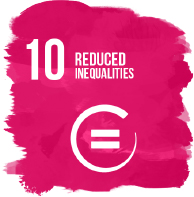Sustainable Development Goals 7: Affordable and Clean Energy
Ensure access to
affordable, reliable,
sustainable and modern
energy for all
Access to power has risen during the previous decade, as has the usage of renewable energy in the electrical industry. Energy efficiency has also improved. Despite that, millions of people still lack access to electricity and one-third of the world's population lacks access to clean cooking fuels and technology. Energy access has progressed unevenly across regions, leaving the most vulnerable people even further behind.
The COVID19 pandemic is delaying development and denying access to energy to millions of people. In addition, low oil and gas costs are expected to deter the implementation of sustainable energy technology. On the plus side, lower fossil fuel prices give governments the opportunity to reform fossil fuel subsidies. Clean energy technology might be scaled up as part of recovery initiatives aimed at boosting economic development, protecting workers, and creating employment.
The pandemic increases poverty that limits the electricity access rate especially in Africa and Asia
The global electricity access rate improved from 83 per cent in 2010 to 90 per cent in 2019 with 1.1 billion people accessing electricity for the first time. However, 759 million people still lacked access, with three-quarters of them living in Sub-Saharan Africa (97 million in cities and 471 million in rural areas). 660 million people will still be without electricity in 2030 if current trends continue, with the vast majority (555 million) living in Sub-Saharan Africa.
The COVID-19 pandemic has the potential to stall development in some areas. After dropping over the previous six years, the number of persons without power in Africa climbed in 2020. Due to population expansion and rising levels of poverty in emerging nations in Africa and Asia, basic power services are now expensive for more than 25 million people who previously had access. A further 85 million people, mostly in Asia's developing countries, maybe compelled to reduce their access to basic power due to a lack of funds to pay for a more comprehensive package of services.




Comments
Post a Comment